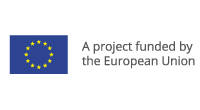Twinning optimises energy regulation in the Mediterranean region

European and Mediterranean energy regulators, gathered in Milan on 18 October 2016 to share their experience of regulatory twinning projects. Twinning is an EU-funded instrument that aims at fostering sub-regional and regional integration of the Mediterranean energy market through knowledge sharing. The workshop organised by MEDREG, identified ways of promoting access to such twinning schemes, sharing experience about the purpose, scope and benefits of this in-depth and hands-on cooperation.
The MEDREG Secretariat shall support Mediterranean South shore countries in this twinning process. The first step towards the implementation of national regulatory reforms is to respond to the specific national needs in each country through a tailor made approach. Participants to the workshop included regulators currently implementing twinning projects in the Mediterranean region: EgyptERA (Egypt), RAE(Greece), AEEGSI (Italy) and CREG (Algeria), CNMC (Spain), E-Control (Austria), as well as colleagues from other Mediterranean regulators curious to know about the initiative: EMRC (Jordan), ERE(Albania) and CRE (France). A second regulatory workshop will take place next year to share among MEDREG members the results of the Egyptian and Algerian twinning projects.
Beneficiary countries of the EU’s twinning framework praised the very positive impact it has had in improving and reforming their energy regulation. EgyptERA explained that its involvement in the process allowed the liberalisation of the Egyptian electricity market, and also pointed out that twinning projects are naturally different from technical assistance. It is a cooperative and solution-oriented tool which deepens long-term relationships and partnership between EU countries and Southern shore Mediterranean regulators. “For its part, CREG indicated that the twining initiative aims to strengthen its organizational and administrative capacity as the national authority and to improve the quality of public services and to the efficiency of the regulatory framework.”



